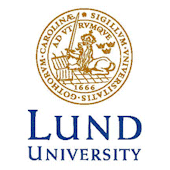In terms of substance, the broad theme connecting the various strands of my work until now has been the space outside of traditional, doctrinal understandings of international law and legal history and the manner in which the global legal order has been imagined and actualised by various legal actors on a local, regional and international level.
My doctoral project adopted a socio-legal approach in constructing a critical historical account of the concept of self-determination in international law - one that conceptualised self- determination, and law more broadly, as a complex cluster of competing norms, social processes and conflicting interests. Tracing self-determination as a norm of international activity through an examination of its circulation amongst various actors as an important rhetorical and normative tool, taking the contests over its meaning as its central focus, the thesis sought to provide a more nuanced and diversified history. I drew particular attention to the manner in which the polysemy and indeterminacy of self-determination as a legal idea has provided a unique juridical space in which groups may either challenge or affirm the limitations of the existing normative basis of law, enabling critical moments of encounter between previously excluded claimants and established legal orders.
Experience
-
–presentPostdoctoral Fellow in International Law, Lund University
Education
-
2015University of Copenhagen , PhD
- Website
- Article Feed
- Joined


